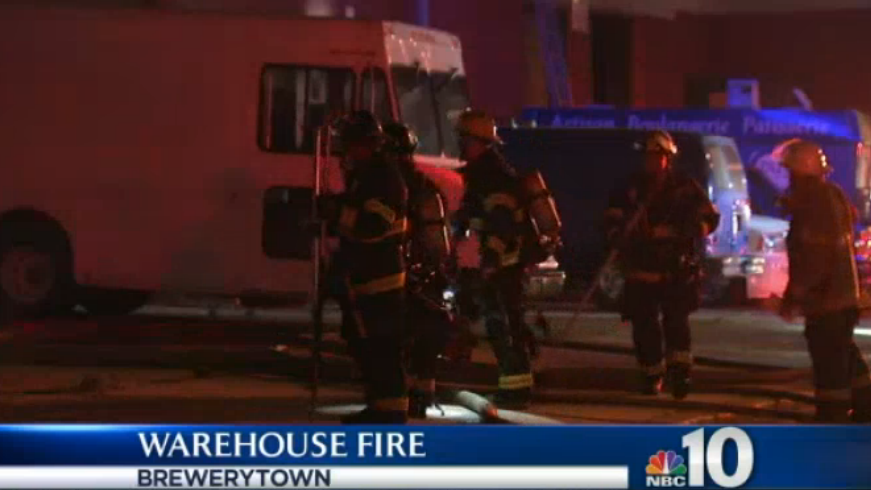Philadelphia residents and visitors will have fewer food truck options during this year's busy summer season since dozens of food trucks are still unable to work a week after a fire that broke out at a local commissary.
Philadelphia requires food trucks to report daily to a commissary for service, food preparation and cleaning, but at least 30 food trucks have been impacted after a fire on June 6 broke out at the USA Mobile Commissary at 31st and Jefferson streets.
The cause of the fire has not yet been determined, although a report from the fire department is expected within eight weeks, according to Rob Mitchell, president of the Philly Mobile Food Association and owner of The Cow and the Curd food truck.
Since food trucks require a commissary, this has left them in purgatory.
"It's been a difficult stretch trying to figure out how we proceed from here," said David Fine, founder of Schmear It. "The biggest thing we're dealing with is the damage to trucks. … We're trying to assess what it looks like and how we proceed from there based on insurance coverage."
Damage varies from truck to truck, depending on a number factors like proximity to the fire. One food truck is damaged to the point where owners need a new truck, according to Mitchell.
According to Mitchell, another food truck operator said baking equipment still smelled of fire after exposure to heat even after cleaning and sterilizing.
The impact of being unable to work without a commissary also varies from truck to truck.
Schmear It can be found on the campuses of University of Pennsylvania, Drexel University during the school year, and at Love Park every Friday.
"We were supposed to start back up at The Porch at 30th Street Station last Tuesday," said Fine, who added Schmear It was meant to vend at that location every Tuesday in June through the summer. It's considered a great opportunity since a rotating schedule of food trucks was reinstated this year after a sole operator served food there last year.
"That's big for trucks, to establish their schedules and communicate where and when people can find them," he said. "It certainly is more than the immediate impact of not making the money, but communicating and establishing our regularly for our customer."
Not being able to have a commissary is "devastating to a small business like a food truck," Mitchell said.
"You’re talking about a true grassroots, small business," Mitchell said. "Most of these are one-man or one-woman shows with small crews.
"This is an industry … where every food truck is one bad weekend away from financial humility," he continued.
An out-of-commission commissary is a "debilitating blow," said Mitchell, who said food trucks could lose thousands of dollars a week, although it varies from truck to truck.
Many food trucks are opening brick-and-mortar restaurants, including Schmear It, which will open at 3601 Market St., giving the company an additional stream of revenue. A restaurant could serve as the food truck's commissary, Mitchell said, but not having the food truck could still hurt business.
"A food truck is a great mechanism to bring business back to the brick and mortar," he said.
Landlords John Long and David Rudnick did not immediately return a request for comment regarding the warehouse and commissary.
The lease, however, states the landlords must restore the building to the original condition prior to the incident, according to Gary Koppelman of USA Mobile Commissary.
Until there is further information, Mitchell said all that can be done is networking with the food truck community to see how displaced food truck operators can be helped during this time, including work and employment opportunities.
"We’ve done so many positive things, and it’s really unfortunate to have a circumstance like this where food trucks are put out of work right in heart the busy season," Mitchell said.
"The PMFA is sympathetic and empathetic," Mitchell said. "It's a huge blow to the industry. These are trucks people know and love. They're a big part of our culture, and the impact is going to be palpable. They’ll be missed immediately when we have [events in Philadelphia.]"
